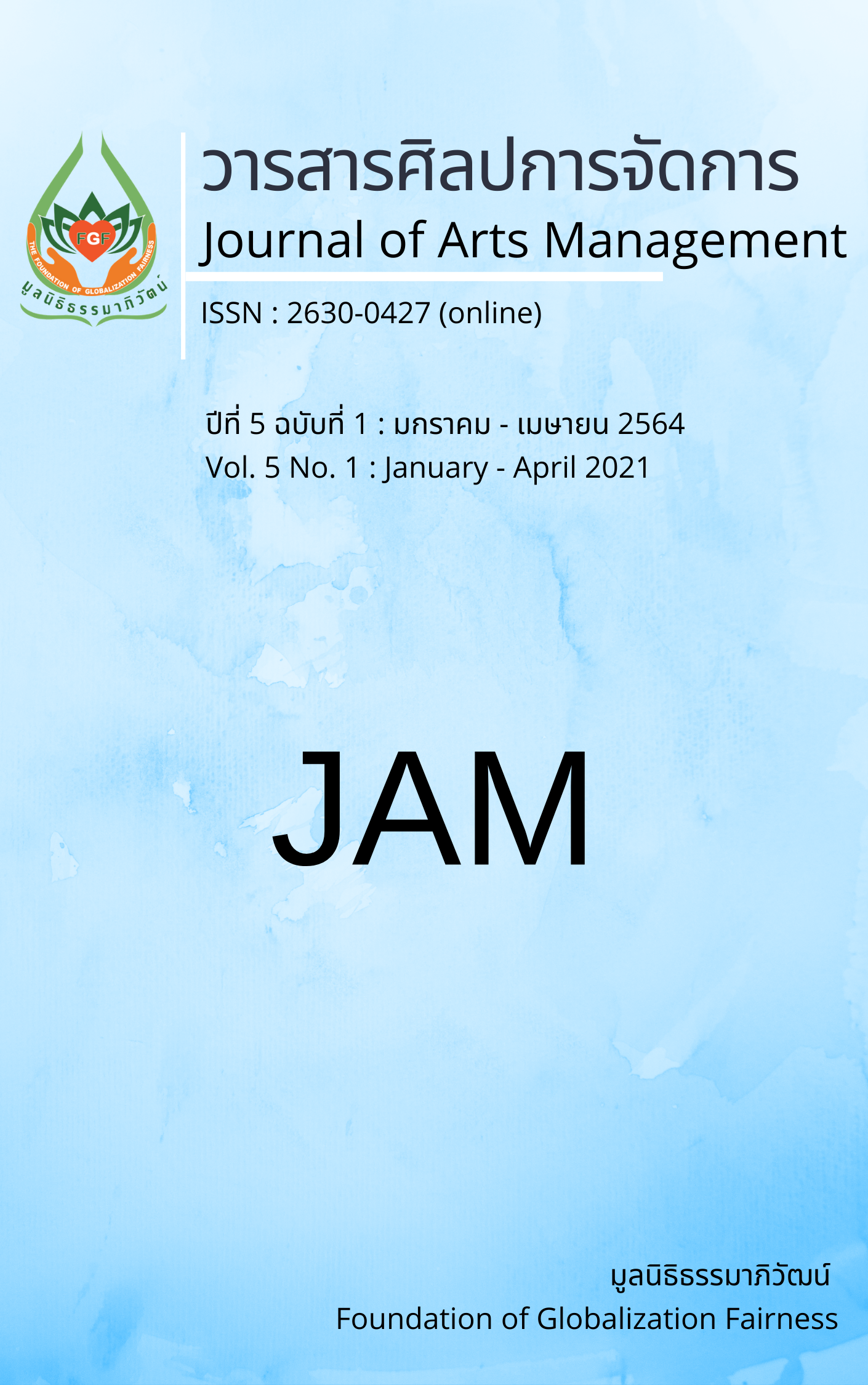Leader Behaviors affecting the Development of SubdistrictAdministrative Organization in Singburi Province
Main Article Content
Abstract
The purposes of this study were as follows: 1) to study the leader behavior affecting the Sub-district Administrative Organization in Singburi Province; and 2) to study the guideline development of leader behaviors affecting development of the Sub-district Administrative Organization in Singburi Province. The population was 162 respondents consisted of (1) the presidents of the sub-district administrative organization, (2) the sub-district administrative committees, (3) the operation staffs and (4) the community leaders. The tools used in this study were questionnaires and data analysis using percentages, mean, and standard deviation. The findings revealed that:
1) The creation of prestige the key leader behaviors were Executives respected by others and took into account the benefits of participation rather than self-interest.
2) Individuality the key to leader behavior was that executives were often optimistic about future events and create values in the work by allowing the participants to take into account the common interests rather than personal interests.
3) Intellectual stimulation; the important leader behavior was that the management brought the outstanding overview of the Sub-district Administrative Organization as a focus on the development of the Sub-district Administrative Organization and diagnose various problems carefully and unanimously before making a decision.
4) Inspiration and the important behaviors were that the administrators used a good coordination as a link between the members of the Sub-district Administrative Organization, community leaders and people together and paid attention to the employees to build good morale in the Sub-district Administrative Organization.
Article Details
Views and opinions appearing in articles in the Journal of Arts of Management It is the responsibility of the author of the article. and does not constitute the view and responsibility of the editorial team I agree that the article is copyright of the Arts and Management Journal.
References
ชูวงษ์ ฉายะบุตร. (2549). การปกครองท้องถิ่นไทย. กรุงเทพฯ: โรงพิมพ์ส่วนท้องถิ่น.
จุฑาทิพย์ สุจริตกุล. (2562). ภาวะผู้นำการเปลี่ยนแปลงของผู้บริหารองค์กรปกครองส่วนท้องถิ่นในยุคประเทศไทย 4.0 กรณีศึกษา: องค์กรปกครองส่วนท้องถิ่นจังหวัดภูเก็ต. วารสารมหาจุฬานาครทรรศน์, 6(10), 4930-4941.
ณิรดา เวชญาลักษณ์. (2560). ภาวะผู้นำทางการบริหาร. กรุงเทพฯ: จุฬาลงกรณ์มหาวิทยาลัย.
ณัฐชัย อินทราย. (2562). การบริหารงานคุณภาพของผู้บริหารองค์กรปกครองส่วนท้องถิ่นในจังหวัดลำปาง. วารสารมหาจุฬานาครทรรศน์, 6(10), 5287-5304.
ถวิล ธาราโภชน์. (2547). จิตวิทยาทั่วไป. กรุงเทพฯ: ทิพยวิสุทธิ์.
ธราพงศ์ ลิ้มสุทธิวันภูมิ และ ตวงทอง สินชัย. (2563). การทุจริตในการจัดซื้อจัดจ้างของหน่วยงานภาครัฐ. วารสารสหวิทยาการมนุษยศาสตร์และสังคมศาสตร์, 3(2), 311-323.
บุญชม ศรีสะอาด. (2553). การวิจัยเบื้องต้น. (พิมพ์ครั้งที่ 8). กรุงเทพฯ: สุวีริยสาสน์.
ประคอง กรรณสูต. (2550). สถิติเพื่อการวิจัยทางพฤติกรรมศาสตร์. กรุงเทพฯ: จุฬาลงกรณ์มหาวิทยาลัย.
วิเชียร เกตุสิงห์. (2550). หลักการสร้างและวิเคราะห์เครื่องมือที่ใช้ในการวิจัย. กรุงเทพฯ: ไทยวัฒนาพานิช.
องค์การบริหารส่วนตำบล จังหวัดสิงห์บุรี. (2564). รายชื่อองค์การบริหารส่วนตำบล จังหวัดสิงห์บุรี. สืบค้นเมื่อ 4 มกราคม 2564. จาก www.jaksri.go.th/link_opt.php.
อัฉรพันธุ์ คงจันทร์ และ คณะ. (2562). ภาวะผู้นำการเปลี่ยนแปลงของผู้บริหารเทศบาลตำบลในจังหวัดนครศรีธรรมราช. วารสารเทคโนโลยีภาคใต้, 12(2), 107-114.
Bass, B.M. (1985). Leadership and Performance beyond Expectations. New York: Free Press.
Dale, M.E. (1974). A Comparative Students of Achievement between College Students being Taught in the Traditional Those Taught with Learning Modules. Dissertation Abstracts International, 34(10), 6481-A.
Fayol, H. (1991). Generation Industrial Management. London: Pitman and Sons.
Hersey, P. & Blanchard, K. H. (1982). Management of Organizational Behavior: Utilizing Human Resources. New York: Prentice–Hall.
Nevid, J. (2013). Psychology: Concepts and applications. Belmont: Wadworth.
Snongtaweeporn, T., Siribensanont, C., Kongsong, W. & Channuwong, S. (2020). Total Quality Management in Modern Organizations by Using Participation and Teamwork. Journal of Arts Management, 4(3), 818-829.


